April is Bowel Cancer Awareness Month and to raise attention about this important issue, it’s vital that you look at how the foods you are eating play a major part in your bowel health.
Processed foods are often low in fiber as the nutrients and health benefits are often lost or unintentionally removed. For this reason they are best avoided and wholesome plant based foods are highly recommended.
For good bowel health, it’s essential to eat plenty of foods high in soluble fiber and rich in nutrients…
Why Keep Bowels Healthy?
Your bowels play an essential role in building a strong immune system and producing the right kind of bacteria that directly tells the brain to feel good again.
The overall health of your gastrointestinal system is vital to your overall wellbeing. When your gastrointestinal system’s health is restored, this can have positive effects on the entire body, benefiting moods, memory and more.
New evidence shows there is a strong connection between gut health and brain health. Leaky gut syndrome is a very real health condition for too many individuals and research also shows how it plays a strong connection between gut health and brain health in the body.
Poor gut health symptoms include abdominal pain, bloating, reflux or flatulence, headaches, fatigue, joint pain and immune system weakness.
Here are 5 foods to eat more of to support good bowel health…
1. Beans

Beans and legumes are an excellent source of soluble fiber meaning they create better bowel movements. Black Beans, Chickpeas, Mung Beans and Split Peas are all rich in fiber and antioxidants. Beans are also a protein rich superfood and excellent for lowering cholesterol. Include more beans in your diet for good bowel health!
2. Beets
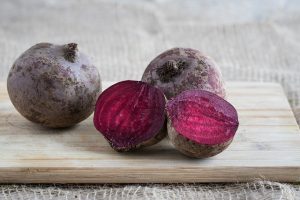
Beets are loaded with dietary fiber and this is a carbohydrate that’s vital for good digestive health. Eating red beets lowers the risk of diverticulitis – a disease that creates colon inflammation resulting in bloating, gas, nausea, irregular bowel movements and nausea. The fiber in red beets also keeps you regular, softening stools and allowing for easier elimination.
3. Buckwheat
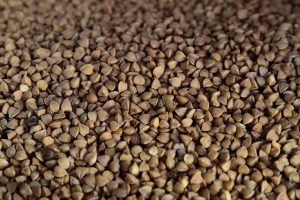
Buckwheat contains 6g of dietary fiber in a one cup serving and this helps with increasing satiety and the transit of food through the digestive tract. Buckwheat is also vital for protecting digestive organs from cancer, infections and other negative symptoms by preventing oxidative stress from forming within the digestive tract.
Researchers from the Department of Food and Nutrition at Bucheon University in Korea tested buckwheat’s effect in animal studies. Their observation was that higher antioxidant activities in the liver, colon and rectum of these animals were found in those consuming buckwheat. Glutathione peroxidase and glutathione S-transferase antioxidants were found in all the digestive systems of animals eating buckwheat. [1]
4. Cauliflower
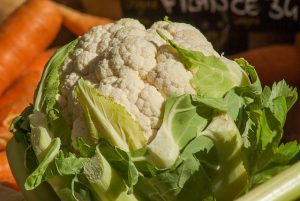
Cauliflower contains Sulforaphane made from glucosinolate. This can help to protect the lining of your stomach. Sulforaphane has the health benefit of preventing bacterial overgrowth of Helicobacter pylori in the stomach wall. Cauliflower contains the second highest amount of glucosolinates, after broccoli. Glucosaintes activate detoxification enzymes, along with being an important source of dietary fiber for digestive health.
5. Lentils
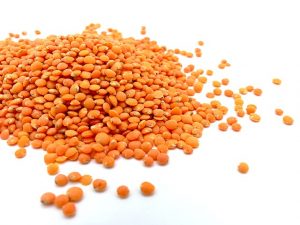 Lentils are a rich source of dietary fiber, both the insoluble and soluble kind. Due to the high level of insoluble fiber found in the lentils, it absorbs water in the digestive tract, causing swelling and the carrying of waste out of the digestive tract.
Lentils are a rich source of dietary fiber, both the insoluble and soluble kind. Due to the high level of insoluble fiber found in the lentils, it absorbs water in the digestive tract, causing swelling and the carrying of waste out of the digestive tract.
For this reason, lentils are great for promoting regular digestion and preventing constipation, IBS, diverticulitis and other inflammatory bowel diseases – including diarrhea. For maximum digestive benefits, it’s recommended to drink plenty of water so the fiber you eat has plenty of fluid to be absorbed.
Recommended Examples
As a creative and more convenient alternative to beans and lentils, consider the following…
Really Healthy Pasta™ – This is pasta made from legumes and nothing else. Available in Black Beans, Buckwheat and Golden Flaxseed, Chickpeas, Mung Beans and Red Lentils, it’s presented in fusilli and penne shapes.
Organic, non-GMO and gluten-free, this is a healthy meal replacement for traditional wheat based pasta – giving you all the health benefits of legumes!
Along with eating the above foods it’s also a good idea to include some good digestive and probiotic supplements into your diet for overall support.
 Essential Digestive Plus™ – A blend of digestive enzymes including healthy Bifidobacterium growth and Inulin to help improve synethesis of essential nutrients and provide relief for food allergies, indigestion and general discomfort. When digestive enzymes are paired with a healthy diet and balanced stress levels this can correct the body’s imbalances that otherwise lead to a variety of symptoms and may greatly contribute to their disappearance with continued use. Digestives taken between meals may be beneficial in many cases of digestive toxicity.
Essential Digestive Plus™ – A blend of digestive enzymes including healthy Bifidobacterium growth and Inulin to help improve synethesis of essential nutrients and provide relief for food allergies, indigestion and general discomfort. When digestive enzymes are paired with a healthy diet and balanced stress levels this can correct the body’s imbalances that otherwise lead to a variety of symptoms and may greatly contribute to their disappearance with continued use. Digestives taken between meals may be beneficial in many cases of digestive toxicity.

Prescript-Biotics™ – Recommended to support a healthy and strong immune system. SBOs in PrescriptBiotics™ are culturedtogether and encapsulated with their own ancestral food source to keep them vital and living: a humic and fulvic acid prebiotic made from minerals that are billions of years old and extracted from deep inside the earth.
PrescriptBiotics™ capsules are pure, chemical-free, toxin-free, GMO-free, nutrient-rich, and naturally dehydrated to avoid damage done in the freeze-drying process.
Recommended Dose: Take 1 capsule a day. Increase by one capsule a day, for each week.
Available from Good Health Naturally.
References:
[1] https://www.ncbi.nlm.nih.gov/pmc/articles/PMC3395785/
5 Foods You Should Eat To Keep Your Bowels Healthy | www.naturallyhealthynews.com



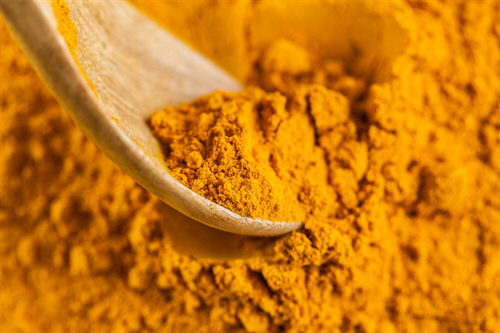

A really interesting and informative article, thank you so much. I will definitely pass this on to my homeopathy clients (in Alsager and Macclesfield) who have problems with their digestive health.